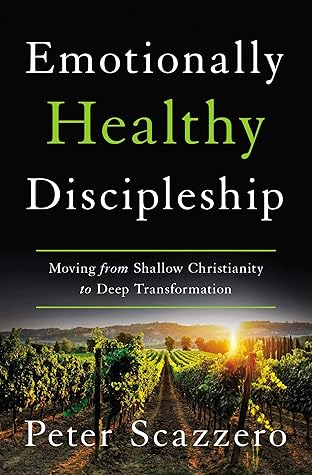More on this book
Community
Kindle Notes & Highlights
Honestly. Say what you truly think and feel rather than softpedaling or distorting the truth.
Clearly. Communicate directly. Rather than being vague or dropping hints, be clear.
In a timely fashion. Consider the moment. You understand that some moments are better than others for certain conversations. You notice when the other person is tired, irritated, or short on time, and you choose to wait until they are more relaxed before talking about your concerns.
First, incarnational listening is not a matter of agreeing with what the person is saying. The purpose of incarnational listening is not finding the solution to a problem. (Although research does show that up to 70 percent of problems can be solved through listening.) Problem solving, or clean fighting as we call it, requires a different emotionally healthy skill. Second, be warned that speaking and listening in order to enter the world of another requires strong character and emotional maturity—especially when the other person is saying something with which we disagree or something negative
...more
When we choose to incarnate love by moving into the world of another person (Dynamic 1), we must still remain faithful to who we are by holding on to ourselves (Dynamic 2). This leads to the difficult work of living in the tension between our world and the world of another person (Dynamic 3). Living in the tension between two worlds occurs when we listen deeply even though we may not fully agree with what the other person is saying—and doing so without reacting, growing impatient, or becoming defensive.
Jesus refused to accept that people were growing in love for God in a way that did not translate into love for people. We must refuse to accept that as well. The religious leaders of his day knew their Bible, practiced spiritual disciplines, and worshiped faithfully, but they were defensive, judgmental, and unsafe to be around. And so are many people in our churches. Jesus’s integration of love for God and people was revolutionary in the first century, and it remains revolutionary today.
building a countercultural community that relates maturely to one another is truly one of the greatest gifts we can offer the world. Discipling people in how to love others, especially those with whom we disagree or who drive us crazy, needs the same time and energy we give to equipping them to love God. The two loves are, as Jesus said, inseparable.
1. Acknowledge how the blessings and sins of your family—going back three to four generations—profoundly impacts who you are today. 2. Recognize you have been birthed into a new family—the family of Jesus. 3. Put off the sinful patterns of your family of origin and culture, and learn how to do life in the new family of Jesus.
remember the core principle of emotionally healthy discipleship: we always begin by looking at ourselves. Churches will never mature beyond the maturity of their leaders. It is our responsibility to model working on our own “stuff” before pointing out the logs and specks in the eyes of others.
clear theology + new skills + new language + intentional follow-up = transformed community
1. Slowed-Down Spirituality 2. Integrity in Leadership 3. Beneath-the-Surface Discipleship 4. Healthy Community 5. Passionate Marriages and Singleness 6. Every Person in Full-Time Ministry
We slow down our pace in order to be with Jesus, and this is the source from which our activity flows.
We do not pretend to be something on the outside that we are not on the inside.
We grow in self-awareness because we cannot change that of which we remain unaware.
We are committed to learning tools and practices in order to love others like Jesus.
Bruce L. Shelley, Church History in Plain Language, Fourth Edition (Nashville: Thomas Nelson, 2008, 2013). To learn more about the early history of the church, see Thomas C. Oden, The Rebirth of Orthodoxy: Signs of New Life in Christianity; D. H. Williams, Evangelicals and Tradition: The Formative Influence of the Early Church; Bryan M. Litfin, Getting to Know the Church Fathers: An Evangelical Introduction; D. H. Williams, Retrieving the Tradition and Renewing Evangelicalism: A Primer for Suspicious Protestants.


